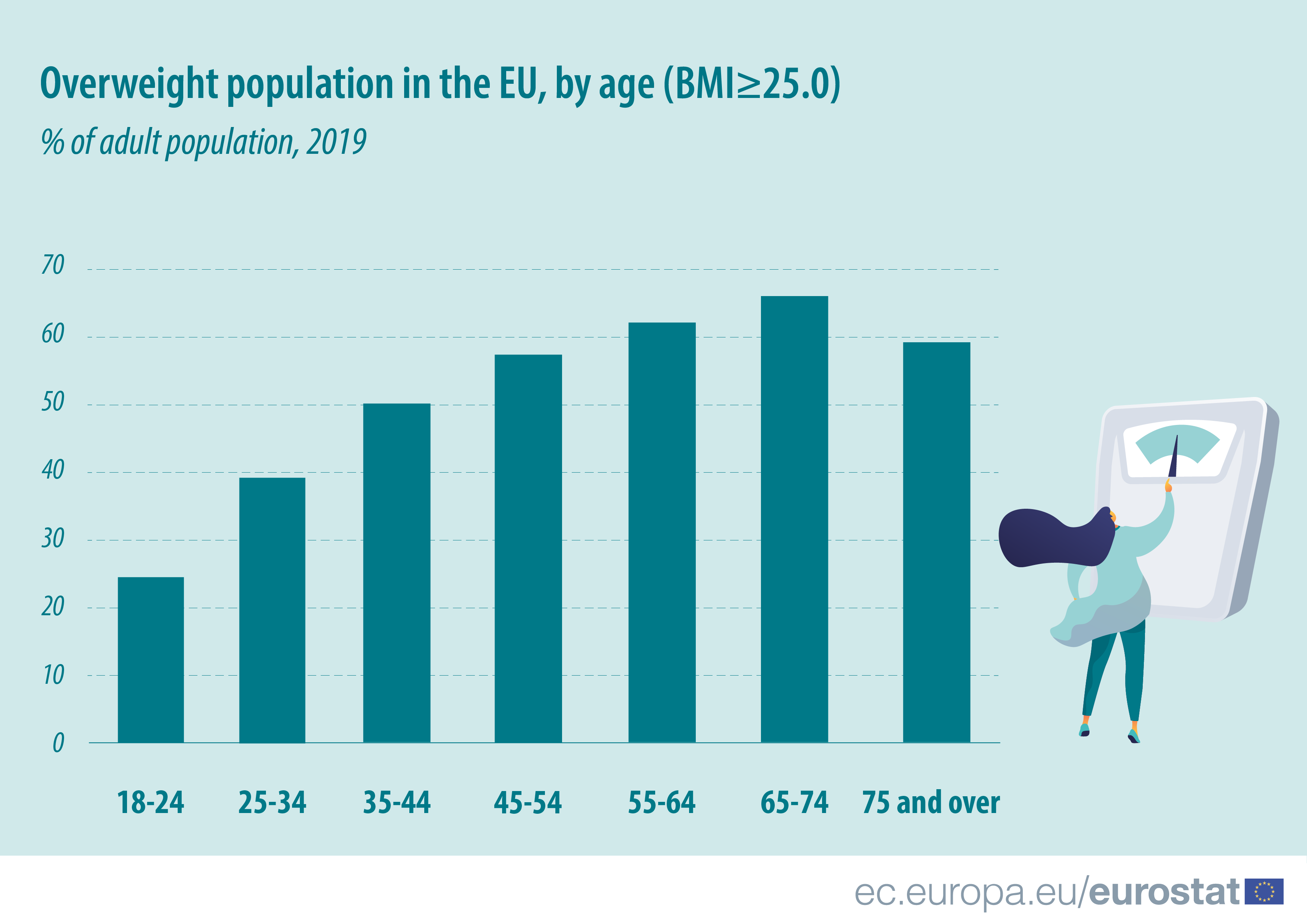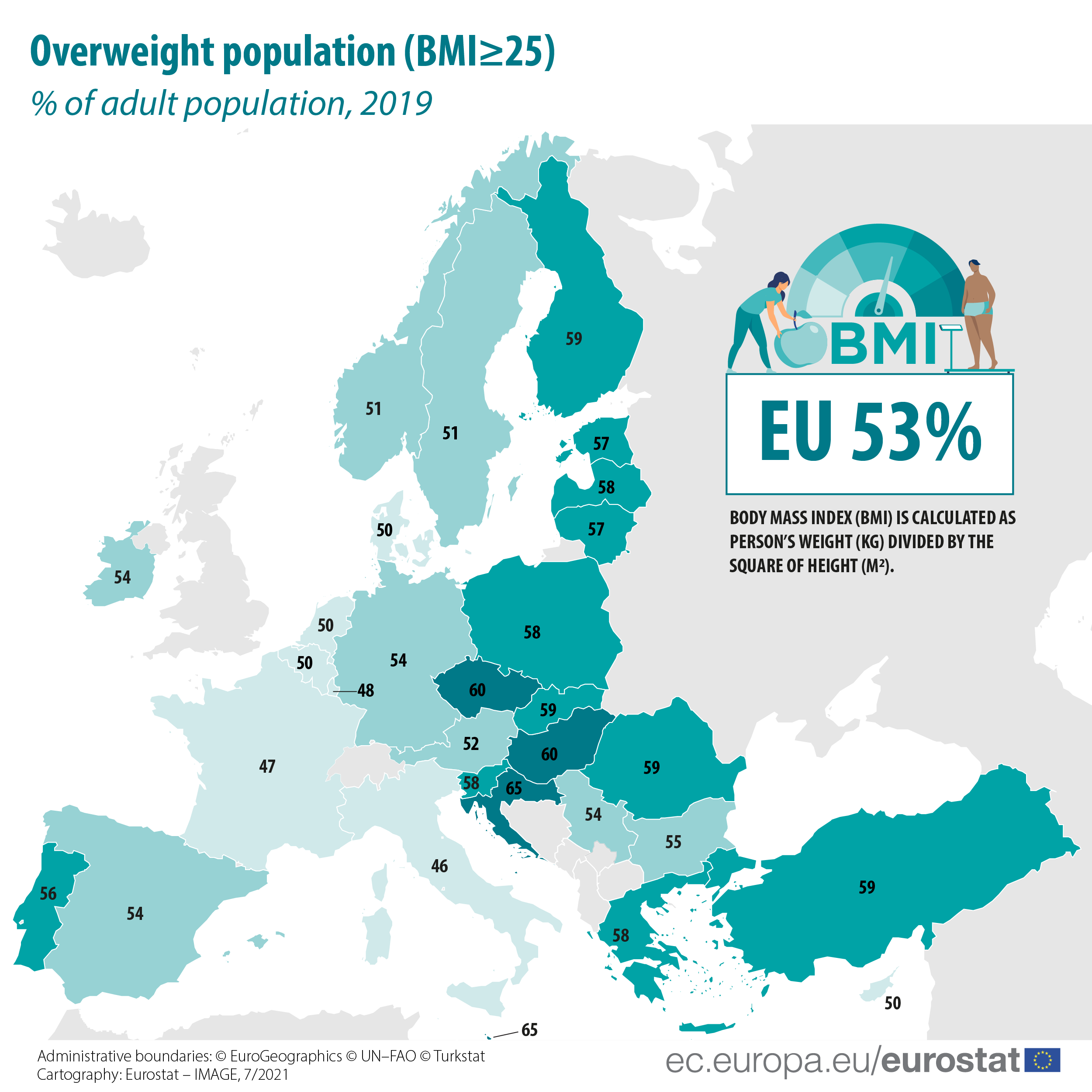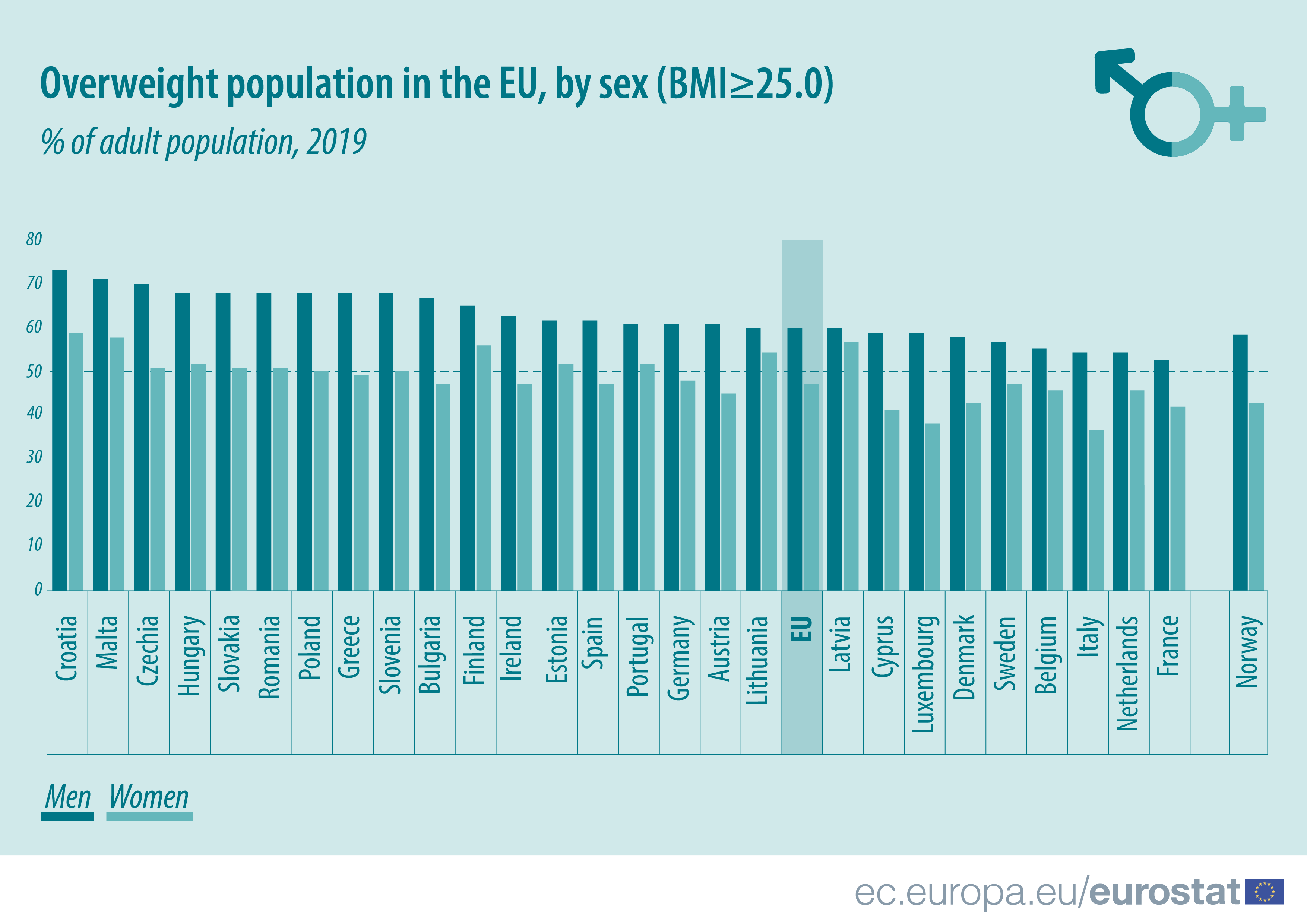While 45% of adults living in the EU had a normal weight in 2019, slightly more than half (53%) were considered as overweight (36% pre-obese and 17% obese) and almost 3% as underweight, according to their body mass index (BMI). BMI is a measure of a person’s weight relative to their height that links fairly well with body fat.
With the exception of those aged 75 or over, the older the age group, the higher the share of overweight people: the lowest share was recorded among those aged 18 to 24 (25%), while those aged 65 to 74 had the highest share (66%) – similarly for the obesity rate (6% vs. 22%).
The pattern is also clear for education level: the proportion of overweight people falls as the educational level rises: while the percentage of overweight adults among those with low education level stood at 59% in 2019, it was 54% for those with a medium education level and 44% for adults with a high education level. Obesity rate also decreases with the education level: from 20% of adults with low and 17% with medium to 11% of adults with high education level.
This information comes from the first results of the European Health Interview Survey (EHIS; third wave) published by Eurostat today. The EHIS measures the health status, health determinants and use of health care services of EU citizens.
This news item shows a handful of findings from the more detailed Statistics Explained article on overweight and obesity statistics.
Highest share of overweight adults in Croatia and Malta, lowest in Italy
The proportion of overweight adults varies across the EU Member States, with the highest shares recorded in Croatia and Malta, where 65% of adults were considered overweight in 2019.
In contrast, the lowest shares were recorded in Italy (46%), France (47%) and Luxembourg (48%).
In all EU Member States, a higher share of men than women were overweight in 2019, with the largest gaps recorded in Luxembourg (59% of men vs. 38% of women), Czechia (70% vs. 51%) and Cyprus (59% vs. 41%).










Leave a Reply